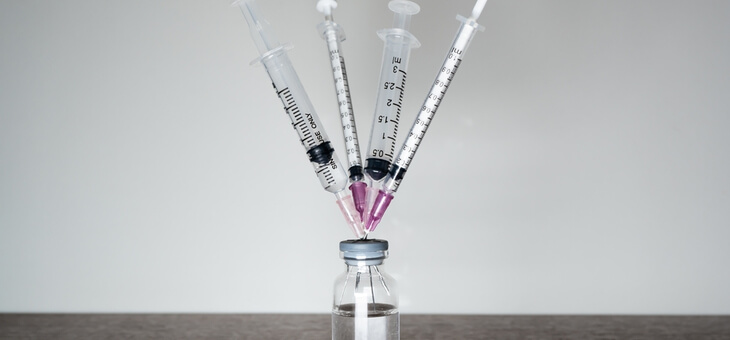Most of us have been dutifully getting our COVID vaccines and booster shots as promptly as possible, but a new study in the US shows that after the third, we may not need another one for months or even years.
A joint study by the Rockefeller University and the Howard Hughes Medical Institute found that the Omicron variant can dodge antibodies produced after two doses of a COVID vaccine. But a third shot of the mRNA vaccines made by Pfizer-BioNTech and Moderna prompts the body to make a much wider variety of antibodies, which would be difficult for any variant of the virus to evade, the researchers found.
Dr Peter Marks, who heads the division of the Food and Drug Administration (FDA) that regulates vaccines, said he hoped that a third shot would be enough of a shield against COVID and that only a yearly booster would be needed. But he cautioned that it was impossible to make any firm prediction without more data.
University of Pennsylvania immunology institute director John Wherry said there was increasing evidence of diminishing returns on the number of booster shots. Although he added that people aged over 65 or at high risk of illness may benefit from a fourth dose.
Read: Can red wine protect you from COVID?
The wider variety of antibodies should also be enough to fight any new variants that differed significantly from the original, says Dr Wherry.
Other studies have found that parts of the immune system can remember and destroy the virus over many months, if not years.
Immune cells called T cells produced after immunisation by four brands of vaccine – Pfizer, Moderna, Johnson & Johnson and Novavax – are about 80 per cent as powerful against Omicron as other variants, the research found.
Read: Mild COVID can affect heart health for up to a year
Research indicates that T cells – also called memory cells – in people exposed to the 2003 SARS coronavirus outbreak lasted more than 17 years and there is evidence that there may be a similar response for COVID.
“Memory responses can last for ages,” said Wendy Burgers, an immunologist at the University of Cape Town, who led one of the studies.
“Potentially, the T-cell response is extremely long lived.”
Read: Concerns COVID treatments may interact with common meds
The Australian government recommends a fourth dose, three months after the third, for anyone aged over 16 who is severely immunocompromised.
Severely immunocompromised people aged five and over require a third dose two months – and no later six months – after dose two to be considered up to date.
However, the government considers anyone with three doses as ‘up to date’.
It also recommends people who have been infected with COVID defer their next booster to four months after their recovery. The previous recommendation was six months.
Are you following the research on booster shots? Would you like to see a COVID/flu combo? Why not share your thoughts in the comments section below?
If you enjoy our content, don’t keep it to yourself. Share our free eNews with your friends and encourage them to sign up.

